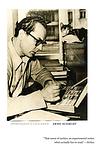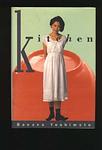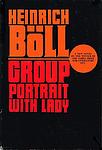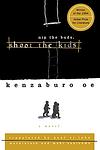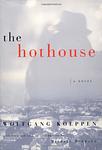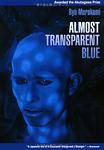The Greatest German, Japanese "Fiction" Books Since 1950
Click to learn how this list is calculated.
This list represents a comprehensive and trusted collection of the greatest books. Developed through a specialized algorithm, it brings together 305 'best of' book lists to form a definitive guide to the world's most acclaimed books. For those interested in how these books are chosen, additional details can be found on the rankings page.
Genres
Countries
Date Range
Reading Statistics
Click the button below to see how many of these books you've read!
Download
If you're interested in downloading this list as a CSV file for use in a spreadsheet application, you can easily do so by clicking the button below. Please note that to ensure a manageable file size and faster download, the CSV will include details for only the first 500 books.
Download-
26. Scenes From The Life Of A Faun by Arno Schmidt
"Scenes from the Life of a Faun" is a complex and experimental novel that delves into the psyche of a German civil servant living in the aftermath of World War II. The protagonist, burdened by the guilt and trauma of the war, retreats into a fantasy world where he imagines himself as a mythological faun. Through a fragmented narrative structure and a dense web of literary and historical references, the book explores themes of memory, responsibility, and the struggle to find meaning in a shattered world. The protagonist's internal journey is a reflection on the moral ambiguities of his time, as he grapples with his complicity in the horrors of the past while seeking redemption in his personal mythology.
The 1862nd Greatest Book of All Time -
27. The Box Man by Kobo Abé
"The Box Man" is a surreal narrative about a man who chooses to live as a homeless individual, inside a box, in Tokyo. The protagonist, a former doctor, narrates his experiences and observations from within the box, and the narrative often blurs the line between reality and hallucination. The book is a philosophical exploration of identity, anonymity, and the nature of existence, challenging the reader's perception of what it means to be an individual in society.
The 1930th Greatest Book of All Time -
28. Beauty and Sadness by Yasunari Kawabata
A renowned novelist in Tokyo is drawn back into the life of his first love, Otoko, who he had a passionate affair with when she was just 15. Now a successful painter, she lives with a young woman named Keiko, who is deeply devoted to her. As the novelist becomes entangled in their lives once again, a complex web of love, jealousy, and resentment unfolds. The novel is a poignant exploration of the enduring themes of memory, love, and loss.
The 1958th Greatest Book of All Time -
29. Kafka On The Shore by Haruki Murakami
"Kafka On The Shore" is a surreal and philosophical novel by Haruki Murakami that follows two parallel storylines. The first is that of Kafka Tamura, a 15-year-old boy who runs away from home to escape an Oedipal prophecy and searches for his missing mother and sister. The second storyline follows Nakata, an elderly man who has lost his memory but possesses the ability to communicate with cats. As their paths converge, they encounter strange and mystical events that challenge their perceptions of reality and identity. The novel explores themes of fate, free will, and the human psyche, and is a captivating and thought-provoking read.
The 1969th Greatest Book of All Time -
30. Momo by Michael Ende
"Momo" by Michael Ende is a captivating tale about a young orphan girl named Momo who possesses an extraordinary ability to listen and understand people. Set in a town plagued by time thieves, Momo's unique gift becomes crucial as she embarks on a quest to save the community from losing their most precious possession: time. With the help of her loyal friends, Momo must confront the enigmatic Men in Grey and their sinister plan to rob people of their time, teaching readers the importance of cherishing the present moment and the power of human connection.
The 1978th Greatest Book of All Time -
31. Billiards at Half-Past Nine by Heinrich Böll
The novel follows the story of the Faehmel family, spanning three generations, in post-war Germany, focusing on the impact of war and the struggle with the country's Nazi past. The narrative centers around Robert Faehmel, an architect who refuses to build anything after World War II, his father, a World War I veteran, and his son, who is trying to make sense of his family's past. The story is told non-linearly, with the characters' memories, dreams, and perceptions revealing the devastating effects of the two World Wars on the family and the country.
The 1981st Greatest Book of All Time -
32. Forbidden Colours by Yukio Mishima
"Forbidden Colours" is a deeply introspective novel that explores themes of beauty, youth, old age, love, and betrayal, set against the backdrop of post-war Japan. The story follows a young, beautiful man who is manipulated by an elderly writer to seek revenge on women. The young man's beauty becomes a weapon, while the old man's bitterness and jealousy drive the plot. The novel delves into the darker aspects of human nature and society's obsession with beauty, providing a stark commentary on the human condition.
The 2018th Greatest Book of All Time -
33. The Clown by Heinrich Böll
Set in post-World War II Germany, the novel follows the life of a professional clown who is in a personal crisis after being left by his long-term girlfriend. The protagonist, who is unable to find work due to his political views, spends a day reflecting on his life, his broken relationship, and the harsh realities of the society around him. The narrative offers a stark critique of Catholicism and the economic miracle in post-war Germany.
The 2053rd Greatest Book of All Time -
34. Black Rain by Masuji Ibuse
The novel is a poignant and detailed account of the aftermath of the atomic bombing of Hiroshima, as experienced by a Japanese family. Through the diary entries of a survivor and the narrative of the days that follow, the book explores the devastating impact of the bomb on the city's inhabitants, their struggle with radiation sickness, and the societal stigma they face. It delves into the physical and psychological trauma inflicted by the event, painting a somber picture of the human cost of war and the long-lasting effects of nuclear weapons on both individuals and communities.
The 2122nd Greatest Book of All Time -
35. Hard-Boiled Wonderland and the End of the World by Haruki Murakami
In this novel, two parallel narratives intertwine, one following a data encryptor in a dystopian, futuristic Tokyo who becomes embroiled in the machinations of a mysterious scientist and his granddaughter, the other set in a surreal, dreamlike town where a man is tasked with reading old dreams from unicorn skulls. As the story progresses, it becomes evident that the two worlds are connected in a profound and unsettling way, leading to a shocking conclusion that explores themes of consciousness, identity, and the nature of reality.
The 2144th Greatest Book of All Time -
36. Kitchen by Banana Yoshimoto
The book is a poignant tale of love, life, and loss intertwined with the themes of food and kitchens. The narrative follows a young woman who, after the death of her grandmother, finds solace in the home of her friend and his transgender mother. As she navigates her grief, she also grapples with her growing feelings for her friend. The story explores the complexities of relationships, the concept of home, and the healing power of cooking.
The 2229th Greatest Book of All Time -
37. Akira by Katsuhiro Otomo
Set in a post-apocalyptic Neo-Tokyo, this graphic novel follows the lives of two teenage friends, Tetsuo and Kaneda, who are members of a biker gang. After a motorcycle accident, Tetsuo develops telekinetic abilities and is taken by the military, which fears his growing powers might unleash another cataclysmic event similar to the one that destroyed Tokyo years earlier. As Tetsuo's powers spiral out of control, Kaneda, along with a group of rebels and psychics, must try to stop him and uncover the secrets of a mysterious entity known as "Akira," which is at the heart of the government's experiments and the city's destruction. The narrative explores themes of power, corruption, and the quest for identity against a backdrop of cyberpunk visuals and intense action.
The 2265th Greatest Book of All Time -
38. Group Portrait with Lady by Heinrich Böll
This novel delves into the life of Leni Pfeiffer, a resilient woman surviving in post-World War II Germany. Through the eyes of an unnamed narrator, the story unravels Leni's life, her relationships, and the socio-political climate of the time. The narrative is presented as a group portrait, with each chapter focusing on different characters who have been part of Leni's life, highlighting the hardships and resilience of everyday people in the aftermath of war.
The 2443rd Greatest Book of All Time -
39. The Quest for Christa T. by Christa Wolf
This novel follows the life of Christa T, a young woman growing up in East Germany during the 1960s. The narrative is told by a friend who pieces together Christa's life from her letters, diaries, and their shared experiences. The story explores Christa's personal, intellectual, and emotional development against the backdrop of a society marked by political repression and conformity. The novel is a profound meditation on memory, individuality, and the power of literature.
The 2443rd Greatest Book of All Time -
40. Dog Years by Günter Grass
"Dog Years" is a novel set in Germany during the rise and fall of the Nazi regime and the aftermath of World War II. The story is told from the perspectives of three friends: Walter Matern, a fervent Nazi supporter; Eduard Amsel, a Jewish artist who creates scarecrows; and Harry Liebenau, who narrates their stories. The novel explores the complexities of friendship and identity amidst the backdrop of war, guilt, and redemption. It also delves into the psychological impact of the Holocaust on German society and the struggle to come to terms with its horrific past.
The 2443rd Greatest Book of All Time -
41. Halftime by Martin Walser
"Halftime" is a thought-provoking novel that explores the life of a successful businessman who, in the midst of his midlife crisis, begins to question the meaning and purpose of his life. As he grapples with his own mortality and the emptiness of his achievements, he embarks on a journey of self-discovery, seeking to reconcile his past and present and find a new path forward. The book delves deep into the human psyche, offering a profound exploration of existential crises, personal transformation, and the quest for authenticity.
The 2443rd Greatest Book of All Time -
42. Nip the Buds, Shoot the Kids by Kenzaburō Ōe
This novel tells the story of a group of reformatory school boys evacuated to a remote mountain village in wartime. The boys are treated harshly by the villagers, who view them as little more than animals. When a plague breaks out, the villagers flee, leaving the boys behind to fend for themselves. The boys attempt to create their own society, but when the villagers return, they are once again treated as outcasts. The book is a powerful exploration of the themes of isolation, rejection, and the struggle for survival.
The 2443rd Greatest Book of All Time -
43. The Glass Bees by Ernst Jünger
"The Glass Bees" is a novel set in a future dystopian society, where technology has advanced to the point where robotic bees are being used for honey production. The story follows a former cavalryman who, desperate for employment, accepts a job from a powerful technocrat to test out these mechanical bees. As the protagonist gets more involved in the technocrat's world, he begins to question the morality and implications of such advancements, leading to a deep exploration of the intersection between technology and nature, and the potential consequences of unchecked technological progress.
The 2443rd Greatest Book of All Time -
44. The Sound of Waves by Yukio Mishima
The novel is a classic tale of first love between a young fisherman and a pearl diver in a remote Japanese coastal village. The story is set in the post-war era and it explores themes of love, tradition, and the power of nature. The fisherman's love for the pearl diver is tested by the village's gossip and the jealousy of a wealthy rival. Despite the challenges, their love remains pure and steadfast, mirroring the timeless and unchanging rhythm of the sea and the cycles of nature.
The 2443rd Greatest Book of All Time -
45. Death in Rome by Wolfgang Koeppen
"Death in Rome" is a post-World War II novel that explores the lives of a German family, their friends, and associates during a reunion in Rome. Each character is representative of a different aspect of German society, and their interactions and experiences in the city serve as a commentary on the nation's struggle to come to terms with its recent past. The book also explores the themes of guilt, denial, and the lingering effects of war.
The 2443rd Greatest Book of All Time -
46. The Hothouse by Wolfgang Koeppen
"The Hothouse" is a post-World War II novel that provides a critique of German society through the eyes of a disillusioned civil servant. The protagonist, struggling with the moral and political complexities of the newly formed Federal Republic of Germany, is caught in a web of bureaucracy, corruption, and personal dilemmas. The narrative, filled with vivid and darkly humorous imagery, offers a stark depiction of the political climate and social unrest of post-war Germany.
The 2443rd Greatest Book of All Time -
47. A Personal Matter by Kenzaburō Ōe
A Personal Matter is a novel that tells the story of Bird, a young man struggling to come to terms with the birth of his son who has a severe brain hernia. As he grapples with his personal demons and the societal stigma associated with having a disabled child, he also contemplates killing his son to end his suffering. The narrative explores themes of responsibility, shame, and the human condition, ultimately leading to Bird's acceptance of his son and his own life.
The 2599th Greatest Book of All Time -
48. 1Q84 by Haruki Murakami
The novel is a complex and surreal narrative that intertwines the lives of two protagonists: a woman assassin who becomes embroiled in a mysterious and dangerous cult, and a male writer caught in a complicated love triangle. As they navigate their respective challenges, they unknowingly cross into an alternate reality, referred to as 1Q84, where the lines between fact and fiction blur. The novel explores themes of love, fate, and the power of the individual against the constraints of a conformist society.
The 2624th Greatest Book of All Time -
49. Patterns of Childhood by Christa Wolf
"Patterns of Childhood" is a semi-autobiographical novel that explores a woman's struggle to reconcile her past as a member of the Hitler Youth in Nazi Germany with her present as a writer in East Germany. The protagonist uses her memories, dreams, and conversations with her brother to confront her guilt and shame over her involvement in the Nazi regime. The narrative shifts between past and present, creating a complex and layered exploration of guilt, memory, and the process of coming to terms with a traumatic past.
The 2680th Greatest Book of All Time -
50. Almost Transparent Blue by Ryū Murakami
The novel is a vivid and disturbing exploration of the lives of a group of young people living in a Japanese port town in the 1970s. They are involved in a hedonistic lifestyle, filled with sex, drugs, and rock and roll, as they aimlessly drift through life. The protagonist, a former student, serves as the narrator, describing the group's experiences in graphic detail, revealing a bleak picture of a generation lost in the aftermath of the post-war economic boom. The narrative's raw and unflinching portrayal of the underbelly of Japanese youth culture is underscored by themes of alienation, self-destruction, and the search for meaning in a chaotic world.
The 2680th Greatest Book of All Time
Reading Statistics
Click the button below to see how many of these books you've read!
Download
If you're interested in downloading this list as a CSV file for use in a spreadsheet application, you can easily do so by clicking the button below. Please note that to ensure a manageable file size and faster download, the CSV will include details for only the first 500 books.
Download